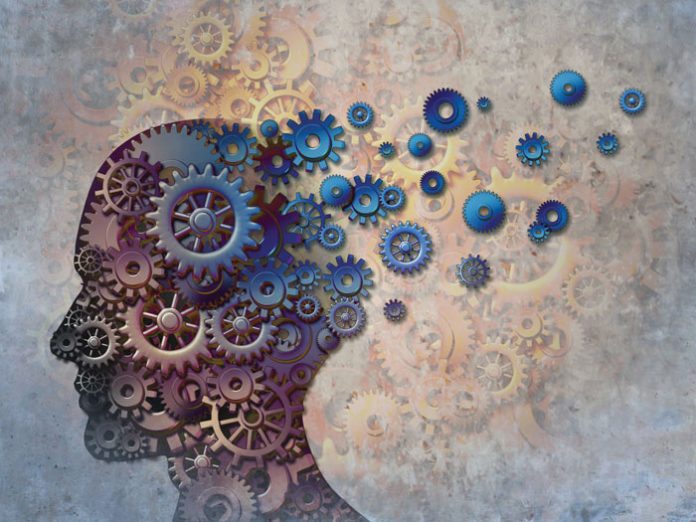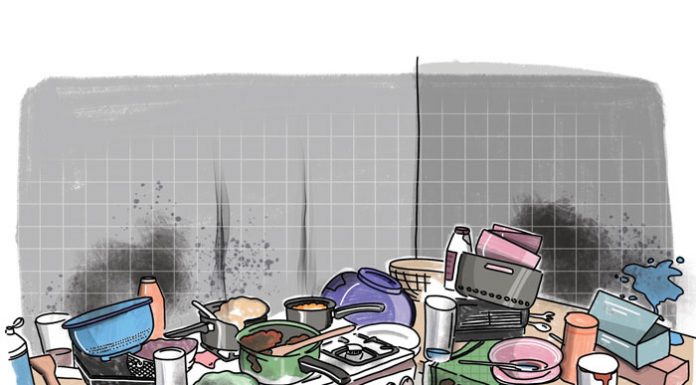The power of a woman, the power of a woman’s faith, is one of the strongest forces in the world.” Nechama Kaufman makes this statement moments after I begin my interview with her. She says it with the confident resolve of a person who knows without a shred of doubt that what she is saying is true. And who would understand this truth better than she?
Nechama’s incredible story began just short of nine years ago, when she was 25. At that point, her life wasn’t unusual. She was married to a wonderful man, Zalman Kaufman, and they were the joyful parents of two beautiful boys. Nechama worked as a special education teacher, and Zalman was the assistant to a religious journalist and filmmaker. They lived in Kfar Chabad in Israel, surrounded by neighbors, relatives, and friends…the simple, happy life of a young frum family.
But an uneventful life wasn’t what Hashem had chosen for the Kaufmans. And on a seemingly inauspicious day eight and a half years ago, their lives were upended without warning.
Ironically, that day had begun with considerable excitement and anticipation. Their oldest son would be starting Kitah Alef the next day, and the family was abuzz in preparation. Nechama helped her son lay out his school supplies and new schoolbag, and they discussed all the great opportunities the year would bring for him, b’ezras Hashem. This was a milestone they had all looked forward to.
But that evening when her husband came home from work, he looked pale and fatigued. The day had been a hot one, and he had done a lot of driving. He told her that he felt dizzy and drained. Nechama urged him to drink some water and lie down for a bit. They had been scheduled to attend a wedding that evening, but when the time came to get ready, Zalman was still feeling poorly. “Go without me,” he said. “I’ll stay home with the kids.”
Nechama agreed. With her husband feeling as weak as he did, it seemed to be the most prudent choice. But when she returned from the wedding later that evening, a devastating sight greeted her. Her husband lay on the floor, unconscious. Frantic, she shouted his name, trying to wake him. But he was unresponsive. With shaking hands, she called an ambulance and explained the situation, her voice trembling.
The most surreal night of her life followed. She accompanied her unconscious husband to the hospital, and the doctors soon informed her that Zalman had presumably fainted and suffered a head injury in the process. There was no telling how severe the injury was and how much of his brain had been affected. They would try to wake him, they said, but they couldn’t promise anything.
The doctors were back a short while later with good news. Her husband had regained consciousness; He was up, his eyes open, and he was looking around. But her relief was short-lived. When she went in to see him, his eyes seemed glazed and confused. He didn’t seem to know who she was. She showed him pictures of the children on her cellphone, but he didn’t seem to recognize them either. In fact, he appeared not to understand what was happening around him.
The next few hours passed in a blur. The doctors took a battery of tests, but they couldn’t come to a definitive diagnosis. At four a.m., exhausted with fear, worry and sleeplessness, Nechama stopped a nurse and begged her to tell her what was happening.
“Well, we’ve ruled out a stroke,” the nurse said gently, “but we don’t know much else. Your husband’s cognitive abilities appear to have been affected, but we can’t tell for sure to what degree. It’s possible there will be some brain damage.”
Nechama was shattered. “Hashem, he’s only 28,” she cried. “What will happen to him? What will happen to all of us?
“There are certain times in your life,” she says now, “when you suddenly realize how vulnerable you are. I was sitting there in the hospital, and what I realized with complete clarity was that only Hashem could help me. My parents, my husband’s mother, my friends, my brothers, my children—none of them could help me. Sure, they could support me, help out with chores and stuff, but only Hashem could truly bring about my salvation. And somehow I found the strength inside of me to say, ‘Hashem, this is between you and me now. You have chosen me and my family to have this nisayon for a reason. I believe we’re going to get out of this. My husband will get out of this. We’re going to be a family.’”
She took a breath, remembering that her son would be up in a few hours, excited and looking forward to his first day in Kitah Alef. He had been anticipating this day with great excitement, and she decided that he wasn’t going to be deprived of it.





















